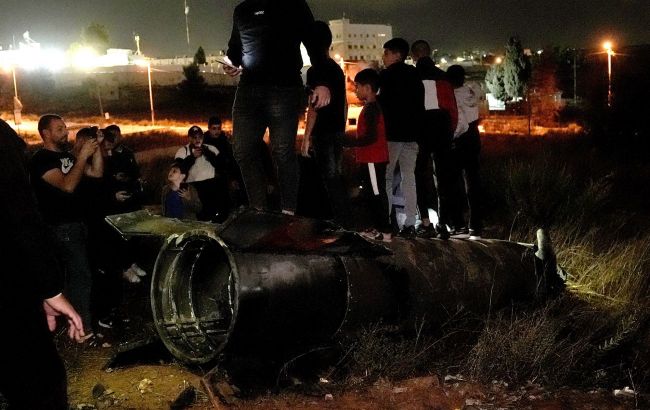Fiasco of missile program: Why Iran's attack on Israel failed
 Photo: Analysts explain why Iran's attack on Israel was a failure (Getty Images)
Photo: Analysts explain why Iran's attack on Israel was a failure (Getty Images)
Analysts believe that Iran's massive attack on Israel was a failure. It showcased the fiasco of Tehran's missile program, according to the Defense Express.
According to data from the Israel Defense Forces (IDF), Iran launched 181 ballistic missiles at Israel on October 1. During the previous massive attack, Iran targeted Israel with 130 kamikaze drones, 30 cruise missiles, and 120 ballistic missiles. The Shaheds flew for about six hours, so the attack did not surprise the IDF.
The attack lasted about 30 minutes, with missiles launched in waves. Videos published online created the impression that Iran had breached Israel's air defense, but this turned out to be untrue.
Israel's air defence completely failed tonight. pic.twitter.com/H06TKJKVHF
— Clash Report (@clashreport) October 1, 2024
According to official statements from Israel, as a result of the strike, two people were injured, and one person was killed. This was a Palestinian in the Gaza Strip, and his death was not related to an explosion. The man came out of the shelter after the all-clear signal, and a piece of an intercepted Iranian missile fell on him.
Another Iranian missile hit a school in the city of Hadera, located in central Israel, while another landed 400 meters away from the Israeli intelligence agency "Mossad" headquarters.
Other consequences of the attack included broken windows, craters on the roads, and cars buried in dirt.
Analysts from the publication note that Israel's missile defense might have allowed Iranian missiles to slip through, considering their number. The Arrow-3 systems or David's Sling intercept ballistic missiles. The well-known Iron Dome is not designed to shoot down ballistic missiles but can only deal with debris.
"At the same time, Iranian missiles demonstrated the accuracy of 'somewhere in Israel,' and at best within a radius of +/- 400 meters, as seen in the case of the missile that fell near the Mossad headquarters," they stated in Defense Express.
Moreover, Iranian missiles had a small warhead that detonated when it had already 'buried itself' in the ground, which reduced or even nullified its destructive power.
Analysts believe the Iranian attack revealed Tehran's failure of its entire missile program. The missiles turned out to be long-range but inaccurate and low-powered.
"Iran will request navigation systems from the Russian Federation, which will allow them to mitigate one of the deficiencies," the authors added.
What's known about Iran's attack
Iran launched its second large-scale strike on Israel since the beginning of the year. The first attack occurred in April. This time, Tehran fired 180 ballistic missiles. The Israel Defense Forces repelled the Iranian attack with assistance from US Navy destroyers.
Iran claimed that the missile strike was in response to the deaths of Hamas and Hezbollah leaders.
In Israel, it was stated that there were no casualties from the attack, but the death of a man in the Gaza Strip was recorded. For more details on the massive shelling, see the article by RBC-Ukraine.
The White House reacted to Iran's attack, calling it a significant escalation. In turn, Israel has already announced a response to Iran.

